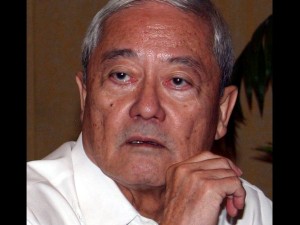MANILA, Philippines—Businessman Roberto V. Ongpin will appeal to the Supreme Court the dismissal by the Court of Appeals of his petition to expunge a P412-million derivative suit since it was “based on a technicality,” according to his counsel.
In a statement, Ongpin’s lawyer Alexander Poblador explained that his client had argued before the appeals court that his motion to expunge the case was not a prohibited pleading.
Citing Supreme Court decisions, Ongpin said what was prohibited was a motion to dismiss that stopped the period for filing an answer. Ongpin’s Motion to Expunge was filed after he had already filed his answer, his lawyer pointed out.
The case stemmed from a derivative suit seeking to compel the former Marcos trade minister to return P412 million in “short swing profits” he had allegedly gained from the sale of shares of Philex Mining Corp. which he earlier bought from the Development Bank of the Philippines (DBP).
A derivative suit is a lawsuit brought by a shareholder of a corporation on its behalf to enforce or defend a legal right or claim, which the corporation has failed to do.
Short swing profits
The complainants, including Mario Ongkiko, a stockholder of Philex, alleged that under Section 23.2 of the Securities Regulation Code, an incumbent company insider like a director or officer was barred from profiting from trading in the same shares within a period of six months.
Ongkiko is the father of lawyer Zenaida Ongkiko-Acorda against whom Ongpin had reportedly filed a disbarment complaint for allegedly misrepresenting herself as DBP’s spokesperson and counsel at the height of the controversy.
Ongpin allegedly made the short swing profits when he purchased 50 million Philex shares from the DBP at P12.75 per share on Nov. 5, 2009, and sold them to Two Rivers Pacific Holdings Corp. of Manuel V. Pangilinan, Philex chairman, at P21 per share over a month later.
Ongpin also argued that under the rules of court, every damage suit should be accompanied by the payment of the appropriate filing fee before it can be admitted by a court.
